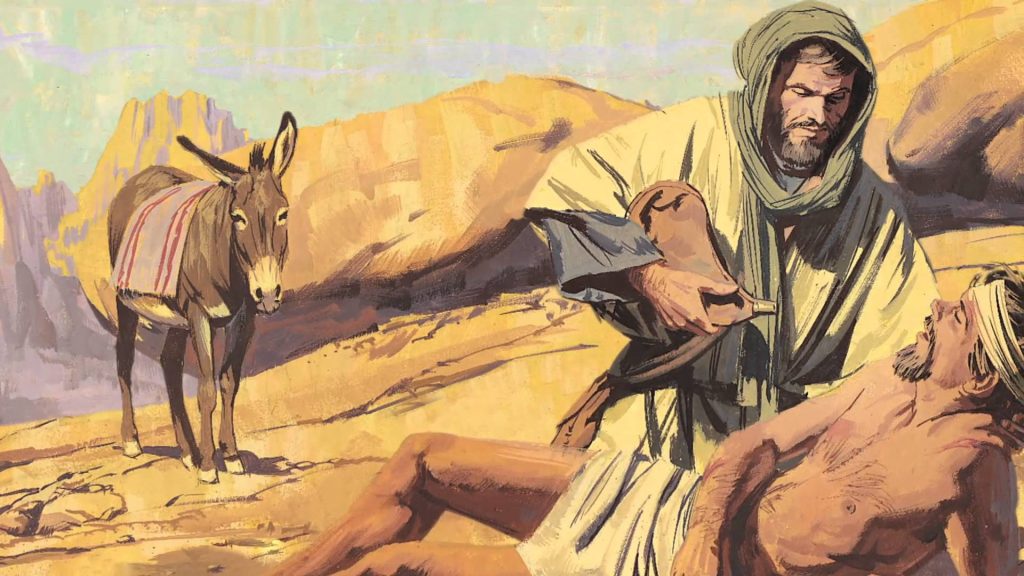
An Easter Reflection
I taught a unit on Diversity and Tolerance to my Year 10 Religion and Values Education (RaVE) class this term. It reminded me that Australian society (including our St Paul’s community) is culturally very diverse. Of course, at St Paul’s we celebrate this diversity: we are an international school, and preparing global citizens is part of our core business.
At St Paul’s we also find great diversity when it comes to religious beliefs: our school community includes Hindus, Muslims, Buddhists and Sikhs, as well as members of the many and varied denominations of the Christian faith. And, of course, many of our school families would have responded to the last census by ticking the “No religion” box.
So what can I say about Easter, to such a diverse audience? May I begin by pointing out a moral belief that is almost universal, that seems to transcend almost all cultural and religious differences – the belief that we should “do unto others as we would have them do unto us”. This ‘Golden Rule’ comes from the teaching of Jesus (Matthew 7:12), as does another, similar teaching – “Love your neighbour as you love yourself.” (Luke 10: 27). And that brings me to my Easter message. Jesus was asked to explain: who is my neighbour? What does it look like to put the Golden Rule into practice? To answer these questions, Jesus told a story that has become almost as well known as the Golden Rule – the parable of the Good Samaritan (Luke 10: 30-37) …
“There was once a man traveling from Jerusalem to Jericho. On the way he was attacked by robbers. They took his clothes, beat him up, and went off leaving him half-dead. Luckily, a priest was on his way down the same road, but when he saw him he angled across to the other side. Then a Levite religious man showed up; he also avoided the injured man.
(Aside: perhaps your experience of “religious” people has been a bit like this?)
“A Samaritan traveling the road came on him. When he saw the man’s condition, his heart went out to him. He gave him first aid, disinfecting and bandaging his wounds. Then he lifted him onto his donkey, led him to an inn, and made him comfortable. In the morning he took out two silver coins and gave them to the innkeeper, saying, ‘Take good care of him. If it costs any more, put it on my bill—I’ll pay you on my way back.’”
“What do you think? Which of the three became a neighbour to the man attacked by robbers?” “The one who treated him kindly.” Jesus said, “Go and do the same.”
You might be expecting that my Easter message would be an encouragement to put into practice the Golden Rule – to treat others in the same way that you would like to be treated. You might even expect that I would urge all members of the St Paul’s community, irrespective of faith (or lack of faith), to love your neighbour as you love yourselves. Well, I do. But wait, there’s more…
At the heart of the Easter message is the gospel, and to understand the gospel we need to see ourselves in the parable – not as the Good Samaritan but, rather, as the one in need. Tim Keller puts it this way, in his book Ministries of Mercy: The Call of the Jericho Road –
This is the gospel. All of us lie helpless and bankrupt, dying on the road. Jesus Christ, who is our natural enemy, who owes us nothing, nevertheless stops and gives us of His spiritual riches and saves us.
I do wish every member of the St Paul’s community well this Easter. I wish every student and every teacher a refreshing, well-deserved holiday. Enjoy the hot-cross buns, the Easter eggs, the sleep-ins, the camping expeditions and everything else that you get up to. Can I urge you also to spend some time reflecting on the meaning of this holiday season and, perhaps, to find yourself in church?
Mr Nigel Grant
Acting Headmaster
